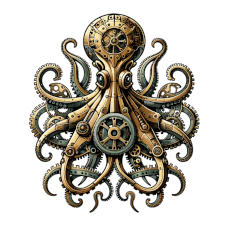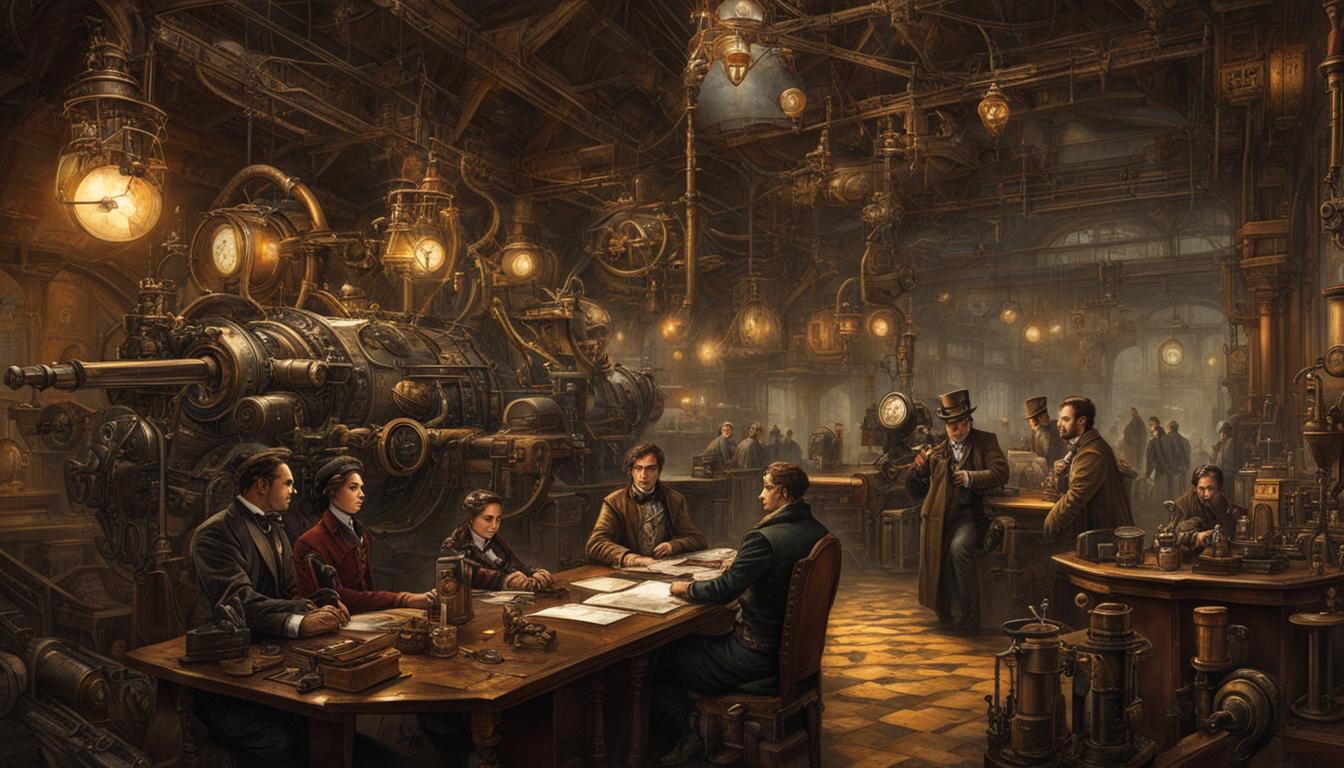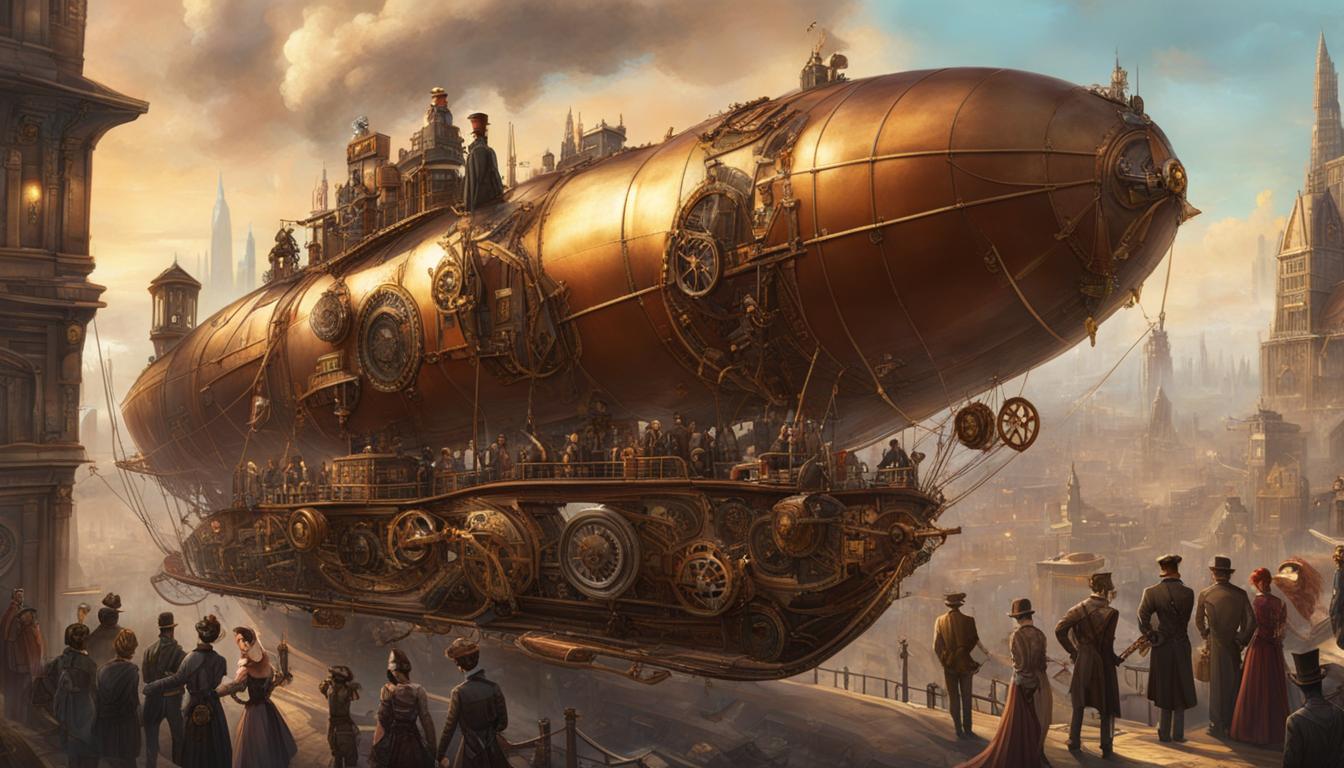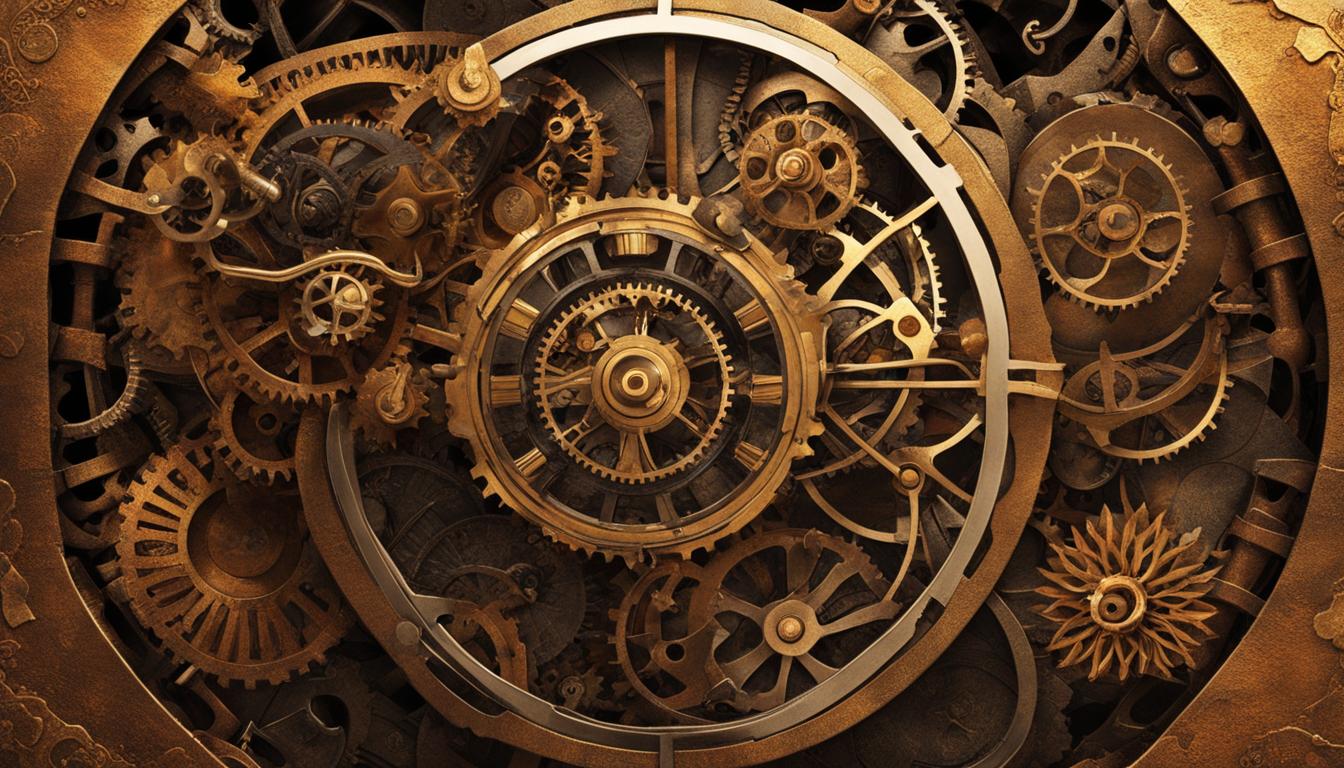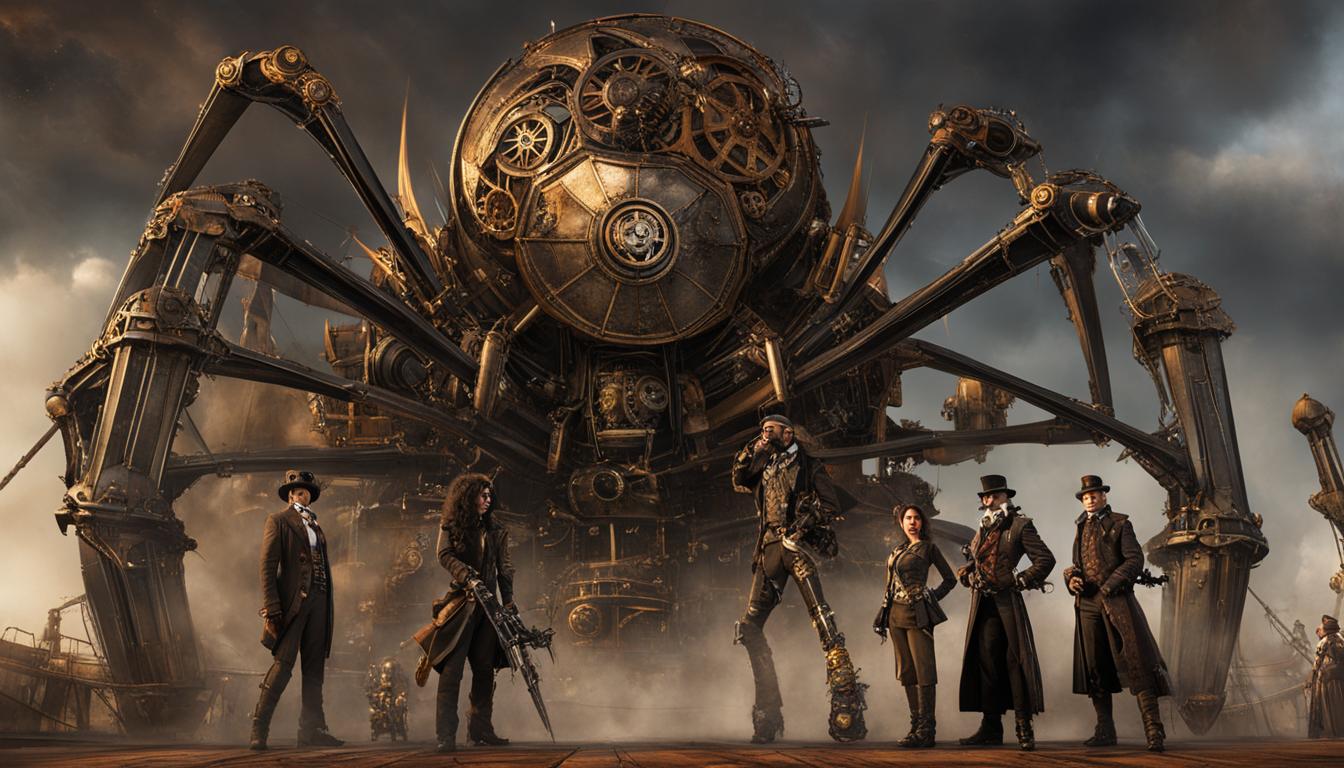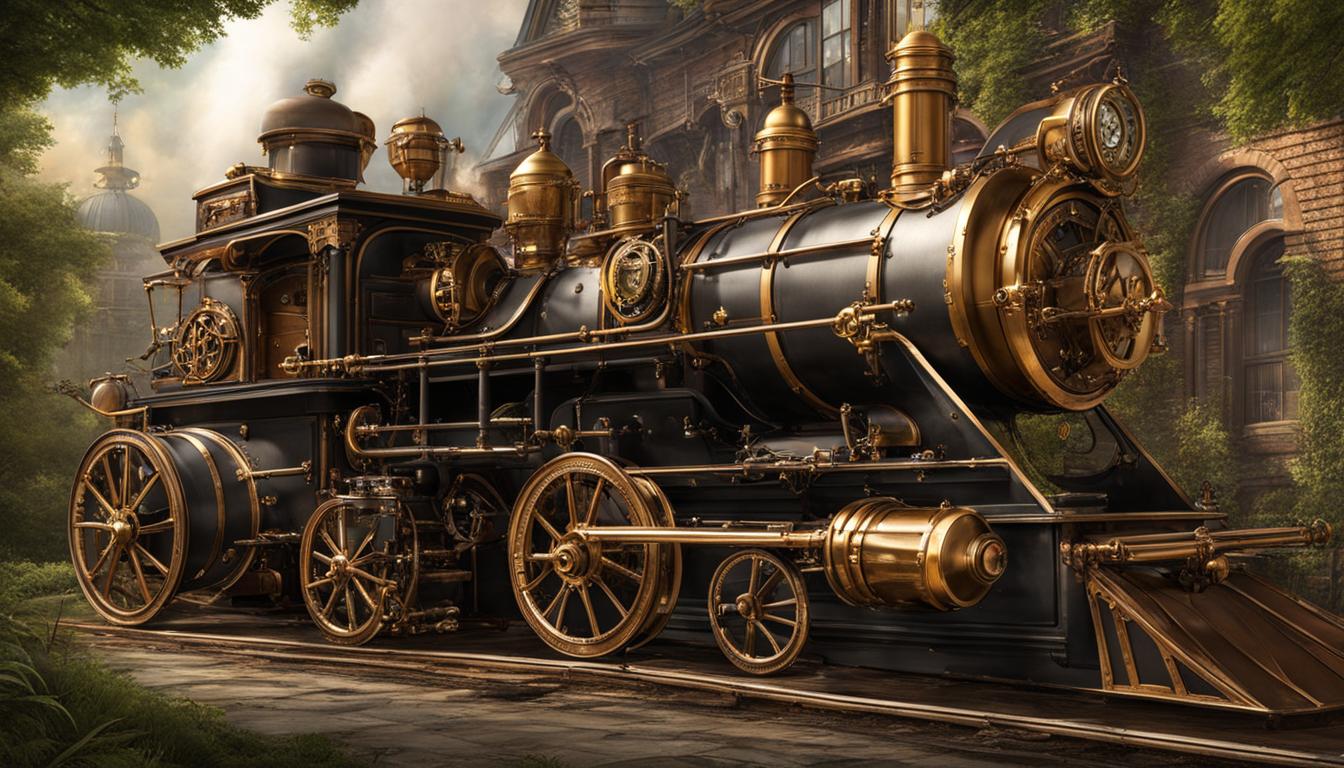Steampunk, the revered genre of speculative fiction, takes readers on thrilling adventures through a world where steam-powered technology and Victorian aesthetics converge. But beneath the gears and goggles lies a deeper layer: the exploration of profound philosophical dilemmas. From moral quandaries to ethical questions, popular steampunk works offer a thought-provoking journey into the complexities of human existence.
Throughout the pages of steampunk novels, characters face moral dilemmas that test their values and challenge their beliefs. Whether it’s the decision to use steam-powered inventions for personal gain or the consequences of exploiting technology for progress, these stories navigate the intricate web of good and evil.
In this article, we will delve into the toughest philosophical dilemmas portrayed in popular steampunk works. Drawing from a rich tapestry of sources, we will explore how steampunk characters grapple with moral choices, confront their own personal responsibility, and critique the imperialist ideals of the genre’s Victorian roots. Join us on a journey through the gears and gizmos as we uncover the profound thoughts hidden beneath this beloved genre’s aesthetic allure.
Key Takeaways:
- Steampunk delves into deep philosophical dilemmas through its speculative fiction genre.
- Moral choices and ethical dimensions of steampunk technology are recurring themes in popular steampunk works.
- Steampunk explores personal responsibility and the far-reaching consequences of individual actions.
- The genre offers a platform to critique and subvert imperialist ideals.
- By examining moral dilemmas, steampunk invites readers to question their own beliefs and values.
Steampunk’s Exploration of Good and Evil
In popular steampunk works, the exploration of good and evil is a recurring theme that captivates readers. Steampunk characters, from daring adventurers to brilliant inventors, often find themselves facing moral choices that test their personal values and beliefs. These choices become a cornerstone of the steampunk narrative, driving the story forward and forcing the characters to confront the consequences of their actions.
The ethical dimensions of steampunk technology further add to the exploration of good and evil. The advancements and innovations within the steampunk world come with moral implications, as the characters grapple with the potential consequences of their inventions. It raises thought-provoking questions about progress versus exploitation, as well as the responsibility that comes with wielding such power.
“Wealth and power can corrupt even the noblest of intentions,” said Professor Amelia Everett, a renowned steampunk author. “Steampunk allows us to examine the moral consequences of our actions in a fantastical setting, where gears and gadgets become metaphors for the choices we make.”
From the gritty streets of Neo-Victorian London to the sprawling airships soaring through the skies, steampunk works offer readers a rich tapestry of philosophical dilemmas to explore. Whether it’s the complexities of personal choices or the broader societal implications of technological advancements, steampunk invites us to ponder the intricate relationship between good and evil in the human experience.
Moral Choices in Steampunk Worlds
Within the realm of steampunk, the characters’ moral choices transcend the pages and resonate with real-life ethical considerations. By facing these dilemmas alongside the protagonists, readers are prompted to reflect on their own beliefs and values. Steampunk becomes a mirror through which we examine our own perspectives on good and evil, challenging us to navigate the complexities of moral decision-making.
Steampunk’s exploration of good and evil extends beyond the individual level. It raises questions about the collective responsibility of society and the impact of our choices on a broader scale. The steampunk universe serves as a backdrop for these philosophical quandaries, offering a unique lens through which to examine the complexities of personal and societal morality.
As steampunk continues to captivate audiences with its fantastical inventions and daring adventures, its exploration of good and evil remains an enduring and thought-provoking theme. Through the moral choices faced by characters living in steampunk worlds, readers are encouraged to question their own understanding of right and wrong, and to ponder the consequences of their own actions in the world around them.
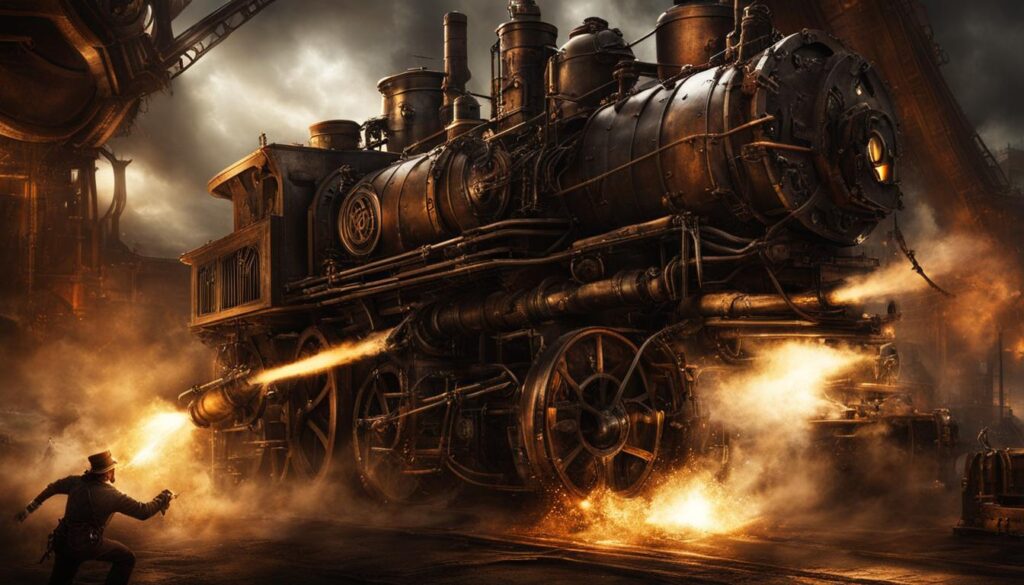
Table: Contrasting Moral Consequences in Steampunk Worlds
| Steampunk World | Moral Dilemma | Consequences |
|---|---|---|
| Neo-Victorian London | Theft of a powerful steam-powered artifact | Imbalance of power, potential destruction |
| Airship Society | Decision to use steampunk technology for war | Loss of innocent lives, perpetuation of violence |
| Underground Resistance | Choosing to sabotage government-controlled factories | Potential liberation and empowerment of oppressed citizens |
Steampunk’s Stance on Personal Responsibility
Steampunk literature delves into the complex philosophical challenges that its characters face, forcing them to navigate the ethical complexities of its unique universes. One of the central themes explored in steampunk works is personal responsibility. Characters are confronted with moral dilemmas that test their values, and their choices can have far-reaching consequences.
The steampunk universe serves as a backdrop for examining the role of individuals in shaping society. It raises thought-provoking questions about the accountability of steampunk characters for their actions. As readers delve into the gears and gadgets of this beloved genre, they are invited to contemplate their own beliefs and values surrounding personal responsibility.
Steampunk challenges us to consider the repercussions of our choices and the power we hold as individuals to shape the world around us.
Through its exploration of personal responsibility, steampunk offers a unique perspective on the ethical complexities of our own reality. It examines the interconnectedness of actions and their consequences, urging readers to reflect on the implications of their choices. Steampunk’s stance on personal responsibility sparks philosophical introspection and invites us to contemplate the impact of our own decisions within the intricate mechanisms of society.
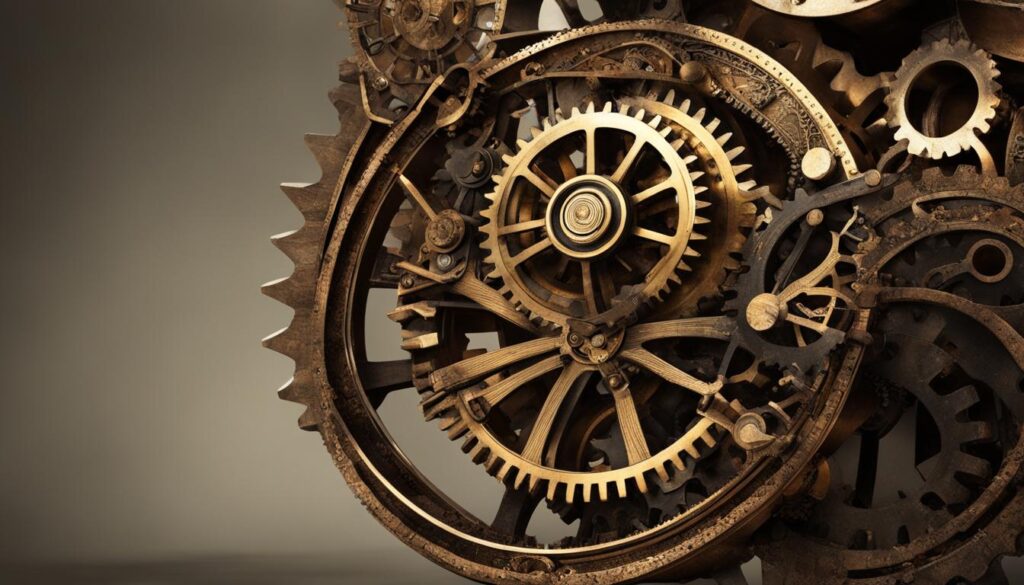
The Steampunk Code of Conduct: A Manifesto for Personal Responsibility
- Embrace the power of individual choice and its effect on the steampunk world.
- Consider the moral implications of your actions and strive to make ethically sound decisions.
- Recognize that progress must be balanced with accountability to avoid unintended consequences.
- Question the role of individuals in shaping society and strive to be a positive force for change.
- Remember: with great power comes great responsibility.
The steampunk genre challenges us to explore the depths of our own personal responsibility and the impact we can have on the world around us. It ignites our imagination while provoking deep philosophical reflection. Steampunk’s exploration of personal responsibility is an invitation to examine the ethical complexities of our own existence and consider the power we hold to shape our reality.
Critique of Imperialism in Steampunk
Steampunk, as a genre heavily influenced by the Victorian era, has faced criticism for potentially glorifying or reenacting imperialist ideals. However, within the steampunk community, there is an increasing movement to challenge and subvert these concepts, ultimately pushing for an anti-imperialist message. While some argue that the aesthetic and subculture of steampunk are inherently tied to imperialism, others believe that steampunks can actively perform anti-imperialism through their creations.
The debate surrounding the critique of imperialism in steampunk raises important questions about the visibility of its anti-imperialist message and the potential for subversive elements in its aesthetics. It serves as a reminder that the genre is not solely a nostalgic homage to the Victorian era but can also be a platform for challenging and reimagining historical narratives.
Steampunk’s ability to critique and challenge imperialism through its aesthetics and narratives is a testament to the genre’s versatility and its potential to engage with complex social and political issues.
Steampunk works that incorporate anti-imperialist themes often provide a fresh perspective on history, inviting readers to question the dominant narratives and explore alternative possibilities. By subverting the traditional tropes and embracing diversity, steampunk authors and creators contribute to a broader conversation about cultural representation and power dynamics.
Table: Steampunk Aesthetics and Anti-Imperialist Elements
| Element | Imperialist Perspective | Anti-Imperialist Perspective |
|---|---|---|
| Victorian Fashion | Reinforces traditional power structures | Diversity in style challenges societal norms |
| Colonial Settings | Glorifies imperial expansion | Reimagines colonized cultures as empowered |
| Steampunk Technology | Reproduces exploitative industrial systems | Offers possibilities for alternative, sustainable solutions |
This table illustrates the dichotomy between imperialist and anti-imperialist perspectives within steampunk aesthetics. While some elements can reinforce traditional power structures, others provide avenues for subversion and empowerment. The diverse range of interpretations within the steampunk community contributes to an ongoing dialogue about the genre’s potential for critiquing imperialism and promoting social change.
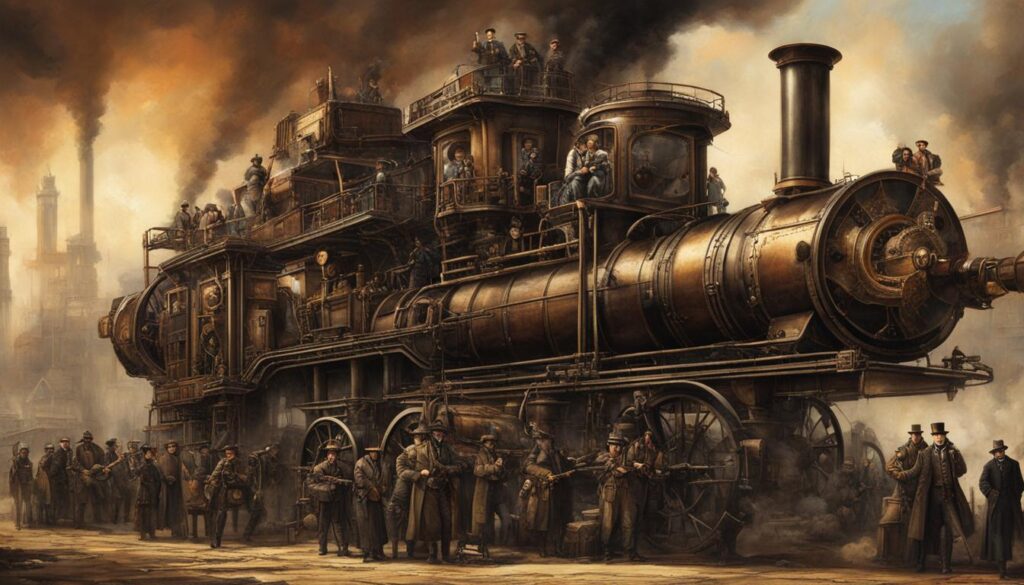
Conclusion
Steampunk literature transcends the boundaries of traditional storytelling by delving into philosophical challenges and ethical complexities. It offers a unique opportunity for readers to explore moral dilemmas and question their own beliefs and values. Through its thought-provoking narratives, steampunk invites us to reflect on the deeper implications of our choices and actions.
In popular steampunk works, the exploration of philosophical quandaries is a recurring theme. From the critique of imperialism to the examination of personal responsibility, these works push the boundaries of traditional storytelling. They challenge us to confront the moral consequences of our decisions and consider the ethical complexities that exist in our own world.
By embracing the philosophical challenges in steampunk, readers are transported to a realm where gears and gadgets become a canvas for exploring profound ideas. The genre offers a rich tapestry of narratives that engage with the complexities of human nature, the limits of progress, and the moral dimensions of technology. As we delve into the depths of steampunk literature, we uncover a treasure trove of philosophical exploration.
So, if you’re seeking a genre that goes beyond surface-level entertainment, look no further than steampunk. Its blend of wit, mystery, and thought-provoking storytelling is sure to ignite your imagination and leave you pondering the philosophical challenges and ethical complexities in popular steampunk works.
FAQ
What are some of the toughest philosophical dilemmas portrayed in popular steampunk works?
Popular steampunk works often delve into deep philosophical dilemmas, exploring concepts such as good and evil, personal responsibility, and the critique of imperialism.
How do steampunk characters face moral challenges?
Steampunk characters are often faced with moral choices that test their personal values. They must navigate the ethical dimensions of steampunk technology and confront the moral implications of their actions.
What ethical complexities are present in the steampunk universe?
The steampunk universe presents a unique backdrop for examining moral dilemmas, where personal choices can have far-reaching consequences. Characters grapple with the moral consequences of their inventions and the fine line between progress and exploitation.
Does steampunk literature address the concept of personal responsibility?
Yes, it does. Steampunk works often present philosophical challenges that force characters to confront ethical complexities and question their role in shaping society. Personal responsibility is a recurring theme in these stories.
How does steampunk address the critique of imperialism?
While steampunk is inspired by a Victorian era defined by imperialism, there is a growing movement within the genre to challenge and subvert these concepts. Some argue that steampunk can actively perform anti-imperialism through its creations, sparking a debate about the visibility of steampunk’s anti-imperialist message and the potential for subversive elements in its aesthetics.
